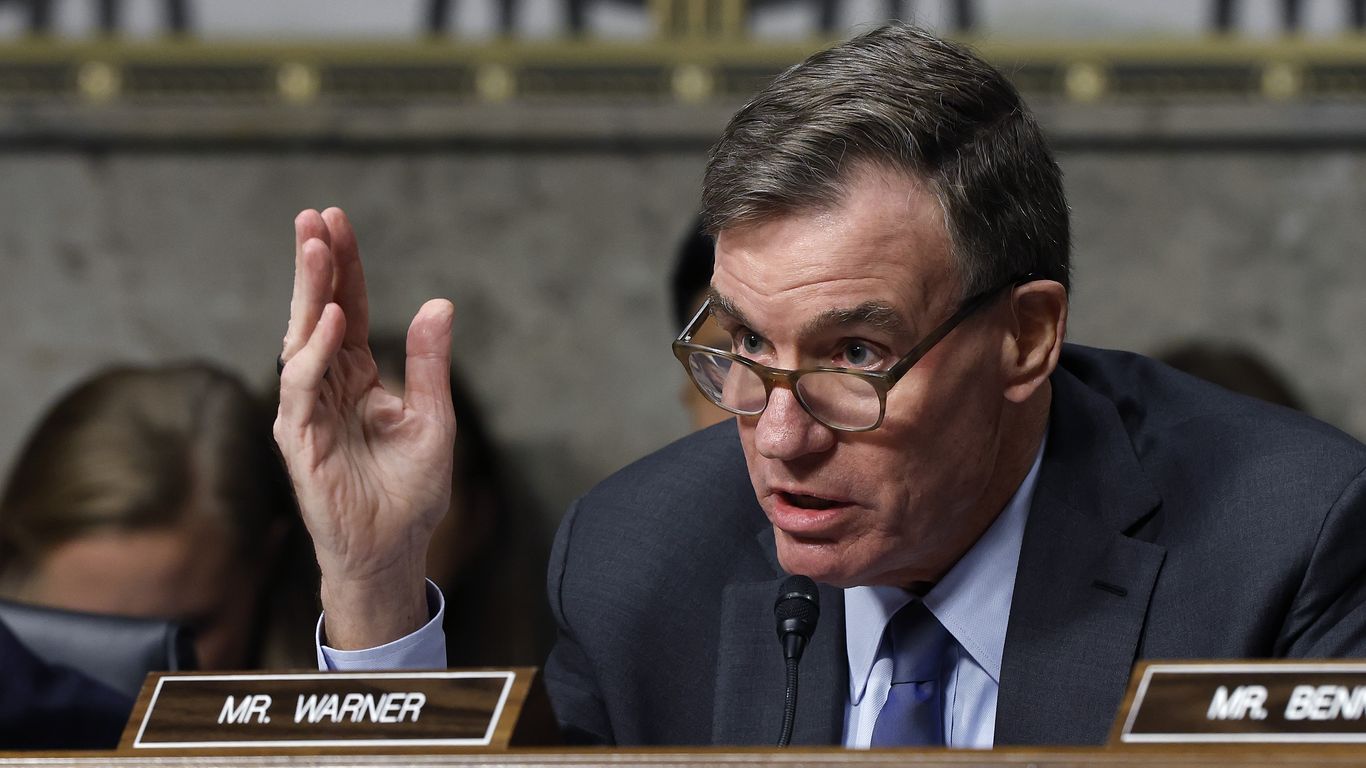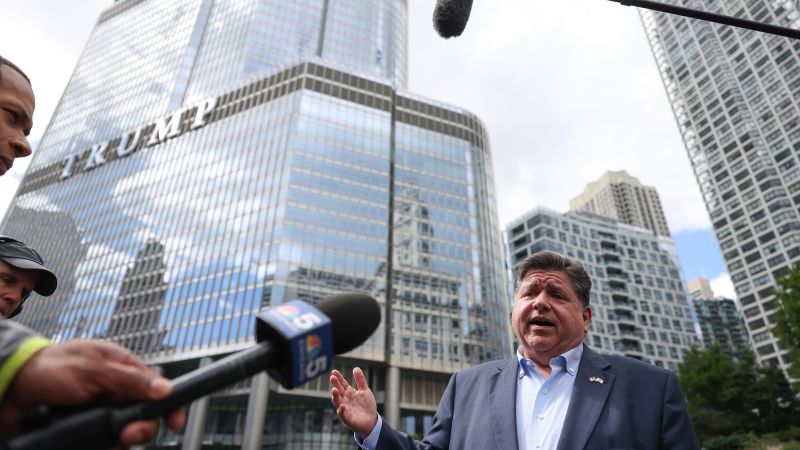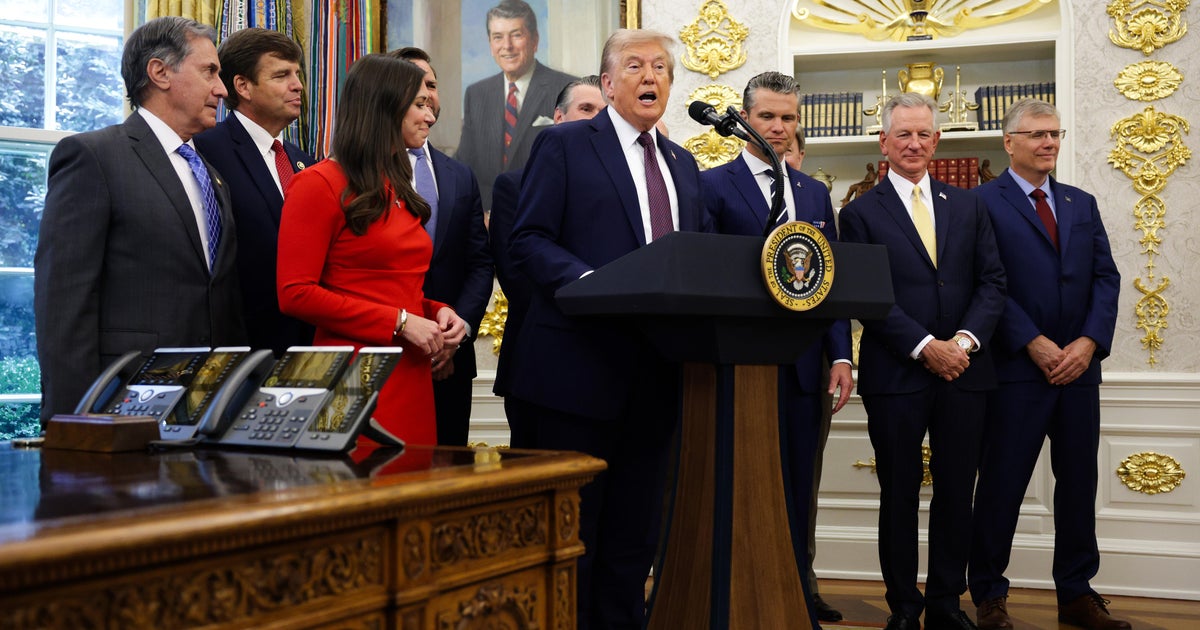Social Media Activism and Government Decisions

Introduction
In a recent turn of events, the top Democrat and Vice Chairman of the Senate Intelligence Committee, Mark Warner, has canceled a scheduled visit to an intelligence agency after being attacked online by conservative activist Laura Loomer. Warner expressed concern about Loomer's involvement in the firings of top officials within the intelligence community, and questioned whether she was acting as a member of President Trump's Cabinet.
Key Details
Laura Loomer, a vocal supporter of President Trump, has gained notoriety for her controversial statements and actions on social media. She has been known to target and attack political figures, including Warner, for their stance on certain issues. However, this recent incident has sparked concerns about Loomer's potential influence on the President's decisions within the intelligence community.
Warner's cancellation of the visit has raised questions about the extent of Loomer's involvement in the firings of top officials and the potential impact it may have on the intelligence community. Some have also raised concerns about the safety and security of government officials and the potential consequences of online attacks on public figures.
Impact
This incident sheds light on the increasing influence of social media and online activism on politics and government decisions. It raises important questions about the responsibility of public figures in their online presence and the potential consequences of online attacks. It also highlights the need
About the People Mentioned
Laura Loomer
Laura Loomer is an American far-right political activist, conspiracy theorist, and internet personality born on May 21, 1993.[2][1] She gained prominence through her outspoken support for and informal advising of former U.S. President Donald Trump, particularly influencing dismissals of government officials deemed insufficiently loyal during his second term.[1] Loomer attended Mount Holyoke College briefly before transferring to Barry University, where she majored in broadcast journalism and served as president of the College Republicans.[1] In 2015, shortly before graduating, she joined Project Veritas, a conservative group led by James O'Keefe, conducting undercover operations such as filming in a burqa at a polling place and at Black Lives Matter events.[1] She later worked briefly as a Shillman Fellow in 2017, resigned from Rebel Media after three months, and contributed to outlets like InfoWars, Geller Report, and American Freedom Defense Initiative.[2] Politically, Loomer ran unsuccessfully as the Republican nominee for Florida's 21st congressional district in 2020, losing to Democrat Lois Frankel, and in the 2022 Republican primary for the 11th district, losing to incumbent Daniel Webster.[2] In April 2023, Trump considered hiring her for his campaign but was dissuaded by advisors; by September 2024, her ongoing influence raised concerns among some supporters.[2] Her current relevance stems from her proximity to Trump and credited role in high-profile firings, including Maurene Comey from the Department of Justice in July 2025 after a two-month pressure campaign on Attorney General Pam Bondi, and April Doss as NSA general counsel days later.[1][2] Loomer has faced bans from multiple platforms for inflammatory content and promoted false claims, such as USAID funding CNN and MSNBC hosts, and accusing Minnesota Governor Tim Walz of responsibility for 2025 legislator shootings.[2]
About the Organizations Mentioned
Senate Intelligence Committee
The Senate Select Committee on Intelligence (SSCI) plays a pivotal role in overseeing the United States Intelligence Community, ensuring that all intelligence activities align with the nation's laws and Constitution. Established in 1976 by the 94th Congress, the committee was created to address concerns about the intelligence community's activities following the Watergate scandal and the Church Committee investigations[1][4]. ### Key Responsibilities - **Oversight and Review**: The SSCI conducts periodic investigations, audits, and inspections of intelligence activities and programs. It also reviews nominations for key intelligence positions[1][4]. - **Legislative Authority**: The committee proposes legislation and authorizes funding for intelligence activities. It has the power to limit or allow certain intelligence operations through legislative provisions[2][3]. - **Intelligence Budget Review**: Annually, the committee reviews the intelligence budget submitted by the President and prepares legislation for appropriations[1]. ### History and Achievements - The SSCI was established to provide vigilant legislative oversight of U.S. intelligence activities, ensuring they conform to the Constitution and laws[4]. - Notable achievements include conducting investigations into intelligence failures and covert operations, such as the CIA's use of torture during the War on Terror[3]. ### Current Status and Notable Aspects - **Membership and Access**: The committee consists of 15 members, with eight from the majority party and seven from the minority. Members have high-level access to classified information, and the President must keep them informed about intelligence operations[3]. - **Collaboration and Tensions**: The SSCI works closely with other committees, such as the House Permanent Select Committee on Intelligence, but often faces challenges in balancing legislative oversight with executive branch powers[6]. - **Technological and Business Implications**: While the SSCI focuses on intelligence oversight, its work impacts the broader landscape of technology and business by influencing policies related to cybersecurity, surveillance, and data privacy[6]. Overall, the SSCI is crucial

















